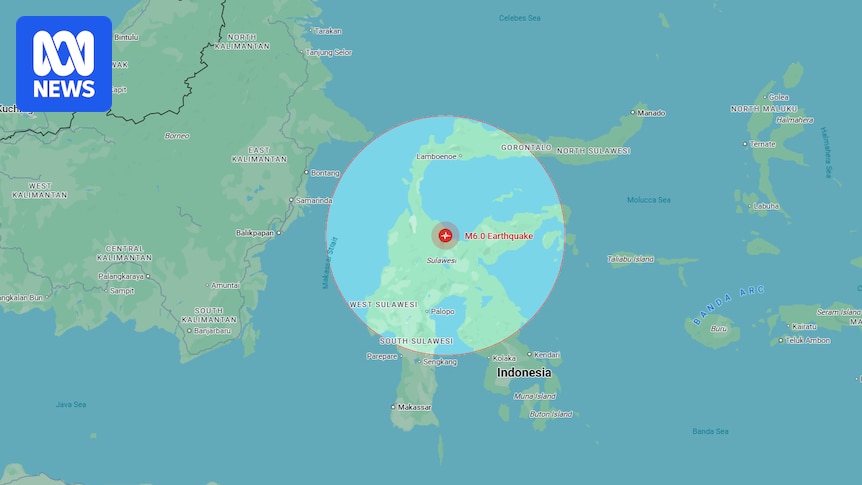Indonesian officials say a magnitude-6 earthquake has struck the Indonesian island of Sulawesi, east of Borneo.
Why it matters
- The earthquake's magnitude raises concerns about potential aftershocks and damage in the region.
- Sulawesi is a seismically active area, making it crucial for local authorities to prepare for natural disasters.
- The incident underscores the need for improved infrastructure and emergency response systems in earthquake-prone regions.
In a significant seismic event, Indonesian authorities have reported a magnitude-6 earthquake striking the island of Sulawesi, located east of Borneo. The quake, occurring in a region known for its seismic activity, has raised alarms among local residents and officials alike, who are now assessing potential damages and the risk of aftershocks.
The earthquake struck on August 17, 2025, at approximately 10:15 AM local time. The epicenter was located in the vicinity of the town of Palu, which has previously experienced devastating quakes, including the catastrophic 7.5 magnitude earthquake and tsunami in 2018 that resulted in significant loss of life and infrastructure damage.
Residents in and around Palu reported feeling the tremors distinctly, prompting many to evacuate buildings in a panic. Local emergency response teams have been mobilized to assess any damage to infrastructure and to provide assistance to those in need. Initial reports suggest that while the tremors were strong, there have been no immediate reports of casualties or severe structural damage. However, officials are urging residents to remain vigilant as aftershocks can often follow significant seismic events.
The Indonesian Meteorology, Climatology and Geophysics Agency (BMKG) quickly issued a warning regarding the potential for aftershocks, advising residents to stay alert for further seismic activity. They emphasized the importance of being prepared for aftershocks, which can sometimes be of significant magnitude and could lead to further risks, especially in areas already impacted by the initial quake.
Indonesia sits on the Pacific Ring of Fire, an area known for its high seismic activity, which causes frequent earthquakes and volcanic eruptions. The country has experienced numerous earthquakes over the years, leading to both loss of life and economic disruption. The government has invested in disaster preparedness and response strategies, yet the challenges remain vast, particularly in remote areas where infrastructure is lacking.
In light of this recent earthquake, local authorities have reiterated the importance of community preparedness for seismic events. Educational programs aimed at teaching residents about earthquake safety and emergency response protocols are crucial in mitigating risk during such disasters. The experience from past earthquakes has shown that timely and effective response can save lives, highlighting the need for ongoing training and awareness campaigns.
As the day progresses, local officials will continue to monitor the situation closely. The National Disaster Management Agency (BNPB) will be assessing the need for further resources and assistance in the affected areas. Efforts to communicate with local leaders and community members are underway to ensure that accurate information is disseminated and that residents know how to respond in case of further seismic activity.
The health and safety of residents remain a top priority as the authorities navigate the aftermath of the earthquake. Emergency shelters are being prepared in case there is a need for displaced individuals to have safe accommodations. Authorities are also working with healthcare facilities to ensure that any medical needs arising from the quake are met promptly.
In summary, while the initial reports suggest that the earthquake may have been less damaging than anticipated, the situation remains fluid. The potential for aftershocks and ongoing assessments of the impact on communities are critical components of the response to this seismic event. As Indonesia continues to face the realities of living in a seismically active region, the resilience and preparedness of its communities will play a vital role in navigating the challenges ahead.











